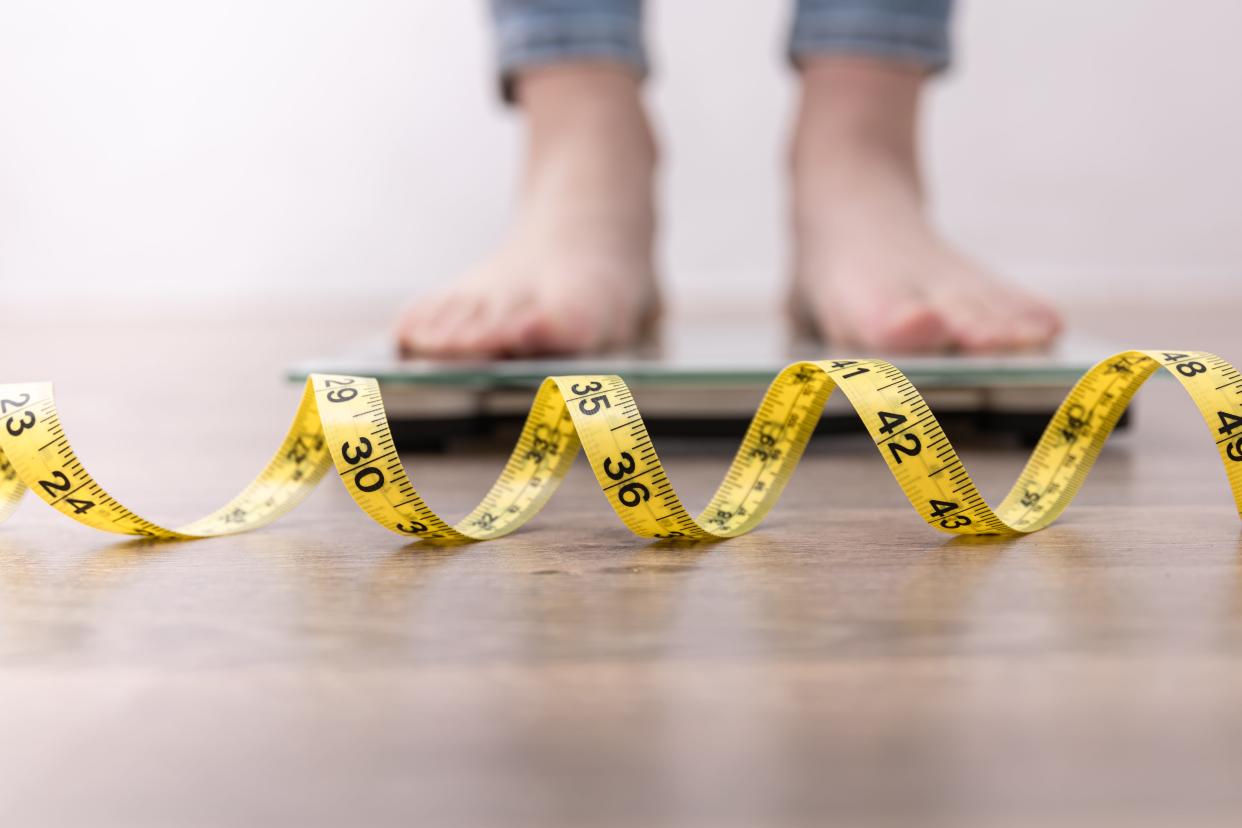What happens to your body on a crash diet and why it's bad for your health

Health experts often warn against crash diets because they go against the wisdom of the body. On a crash diet, you cut daily caloric (kcal) intake drastically to the level of semi-starvation, and you set in motion a series of self-defeating events, including a plummeting metabolic rate.
At our core, survival is our prime directive, and we need an ongoing supply of energy to survive. Simply put, without enough energy, the body suffers, and without any energy, we die. That’s why hunger is our strongest drive. So, it's no wonder we often succumb to temptation, consuming high-fat and high-sugar foods.
Here's what to know about crash diets and how they impact the body:
What is a crash diet?

So, what do we do when it finally catches our attention that we've gained too much weight? For many of us, we seek the quickest and easiest solution – the crash diet. On a crash diet, you reduce caloric intake, and the greater the reduction, the quicker the drop in body weight.
That’s good, right?
Nope. Although you lose weight quickly, you cannot lose body fat quickly. Think about it. Early man faced uncertainty every day when it came to eating, and things got worse if the food supply were severely disrupted by natural disasters or whatever, resulting in no food at all for a prolonged period.
How did we survive back then? Over time we built up an energy reserve packed into body fat that got us through the tough times. This means body fat helps ensure survival, and that’s why the body loves stored fat, places high value on it, and surrenders it reluctantly.
How does a crash diet impact your metabolic rate?
When there is too little food available to the body it becomes more frugal in expending energy by resetting the metabolic rate to a lower level. In other words, you burn fewer calories (kcals) per minute when at rest. Let’s say your resting metabolic rate is 1.2 calories per minute, but it drops to 1.0. That’s a drop of 0.2 calories per minute, which doesn’t seem like much, but it’s ongoing all day long. Therefore, you have 0.2 x 60 minutes x 24 hours = 288 calories you are no longer burning off each day.
The situation gets worse and more challenging for the body as it sheds muscle mass. This is because when food and energy intake is too low, the body worries there may be insufficient glucose available to meet the energy needs of the brain. In response, the body desperately searches for a source of glucose because it is the main fuel for the brain, and it finds an unlikely source in the muscles.
Here’s how it works. The hormone cortisol is sent out to the muscles, breaking them down to their constituent proteins which are further broken down to amino acids. The structure of some amino acids is similar to glucose, and these are taken to the liver and converted to glucose. Increased availability of glucose solves the problem but at the expense of losing muscle mass.
How does this impact metabolic rate? Muscle mass makes up approximately 30-40% of the total body mass in a typical adult. That’s a huge amount and it accounts for most of the body’s metabolic rate because it takes a lot of energy to feed your muscles, even when they are at rest. Less muscle mass means less energy expenditure and a lower metabolic rate.
This is the dirty little secret behind losing weight quickly. You lose a bunch of muscle mass, which means you shed pounds quickly because one pound of muscle yields only 700 usable calories, whereas one pound of fat yields a whopping 3,500. As a result, you can lose muscle five times faster than you lose fat.
What happens when you abandon a crash diet?
What happens when you abandon a crash diet and eat as usual again? Does the body go back to where it was, rebuilding lost muscle mass and increasing metabolic rate to normal levels? Typically, yes, but it takes time and during the lull in metabolic rate combined with eating as usual, you likely will gain body fat. Therefore, as you bring back muscle mass plus additional body fat, you end up heavier and fatter than you were before going on the crash diet.
As to how fast you come back, much depends on how much weight was lost and for how long. Here is an extreme example.
Contestants from the TV program "The Biggest Loser" were studied scientifically to determine the effects of a huge weight loss in a short period of time. It was reported that the metabolic rate of contestants fell dramatically as their body weight plummeted. A research study published in the journal "Obesity" took it a step further and examined how long it takes after the diet is over for the metabolic rate to rebound and return to normal.
On average, subjects in this research study lost nearly 40% of their body weight. This equated to an average loss of 128 pounds (from 327 pounds to 199). Accompanying the weight loss, subjects experienced a drop in their metabolic rate of 23%.
Now, fast forward six years. What happened? Subjects were struggling mightily to keep the weight off, and most found themselves back to their original weight or close to it, and some were even heavier. That’s bad news, but worse, the metabolic rate was measured again and was still well below where it was prior to losing the weight. In other words, they were burning fewer calories per day, which makes managing their weight more difficult.
The takeaway message is that if losing body fat is your goal, lose it slowly, at the rate of only a couple of pounds per month. Keep your metabolic rate high and preserve muscle mass by making only a subtle reduction in caloric intake. And, of course, choose healthier foods and engage in lots of moderate daily exercise.
Reach Bryant Stamford, a professor of kinesiology and integrative physiology at Hanover College, at stamford@hanover.edu.
This article originally appeared on Louisville Courier Journal: What happens to the body on a crash diet, negative impact on health

